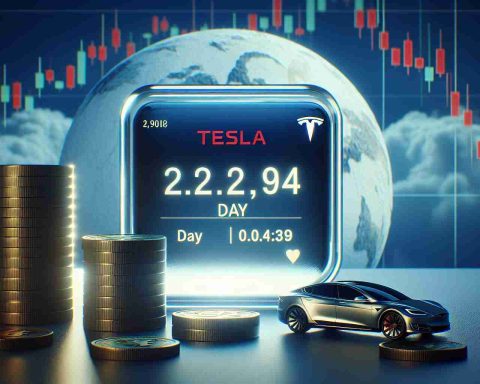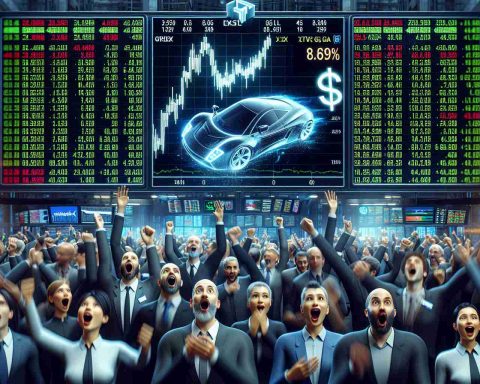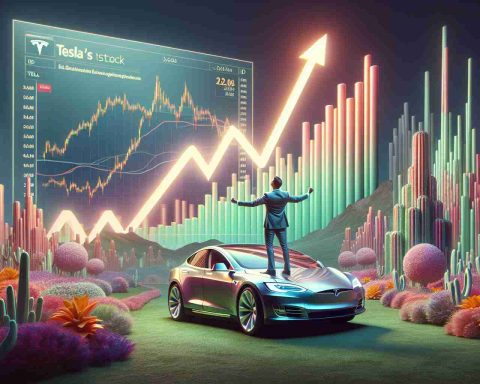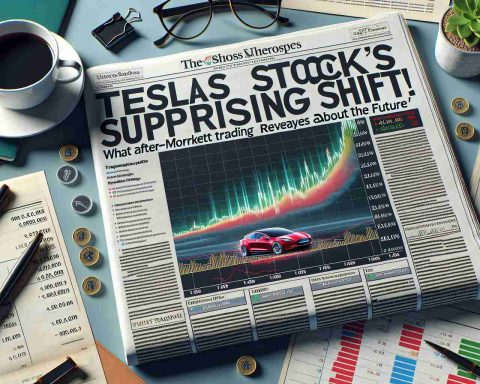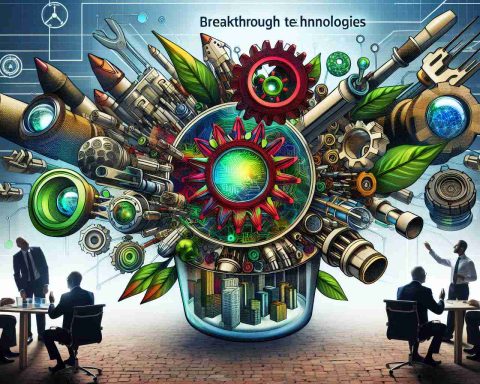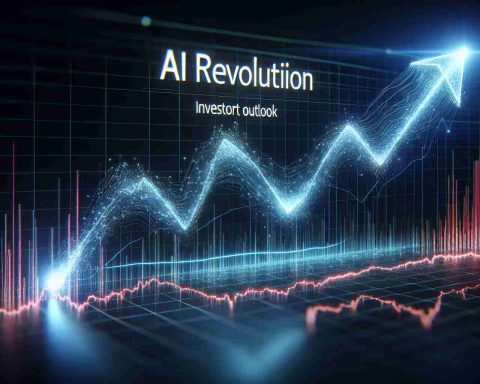Musk and Dimon’s Surprising Reconciliation at Davos
In a stunning turn of events, Jamie Dimon, the CEO of JPMorgan Chase, revealed that he and Elon Musk have resolved their long-standing conflicts during a recent chat at the World Economic Forum in Davos, Switzerland. Dimon described their reconciliation as a moment where they “hugged it out,” signaling a dramatic shift in their relationship.
The two powerful figures have had a tumultuous history, having engaged in legal battles, with Musk previously criticizing JPMorgan’s approach towards his ventures. In earlier court testimonies, Musk had been vocal about the friction, even suggesting that JPMorgan held a negative view of him and his company, Tesla. However, the latest developments indicate a thawing of tensions, as both parties have notably dropped their respective lawsuits against one another.
Dimon didn’t hold back admiration for Musk’s visionary ideas and radical initiatives. He equated Musk’s impact to that of a modern-day Einstein, applauding his endeavors across Tesla, SpaceX, and Neuralink. He emphasized the importance of supporting innovative leaders like Musk.
Additionally, Dimon expressed his endorsement for Musk’s new venture, DOGE, aimed at enhancing government efficiency. He argued that the current governmental system must embrace accountability and outcomes-based approaches, wishing DOGE all the best in its pursuits.
The Broader Implications of Musk and Dimon’s Reconciliation
The unexpected truce between Elon Musk and Jamie Dimon at the World Economic Forum in Davos could signify a profound shift not only within their industry but also across global economic landscapes. Their reconciliation highlights a growing trend where traditional financial institutions and innovative tech entrepreneurs find common ground amidst their differences. As the intersection of technology and finance deepens, this relationship may foster collaborative solutions to complex systemic challenges, pushing forward initiatives that directly impact global economies.
With Dimon’s acknowledgment of Musk’s contributions, there lies an underlying message: the modern economy thrives on disruption and innovation. By aligning themselves, these leaders may inspire a culture that embraces risk-taking and supports unconventional thinkers who drive change. Furthermore, such partnerships could stimulate investment in green technologies and sustainability efforts, crucial as the climate crisis looms larger on the global stage.
On a broader scale, their reconciliation could also influence regulatory responses to tech advancements in finance, potentially steering future policies towards fostering innovation while ensuring necessary oversight. As leaders in their respective fields collaborate, we might witness a ripple effect that encourages other corporations to pursue strategic alliances, enhancing global economic resilience in an unpredictable world.
Ultimately, the long-term significance of this reconciliation may encourage a shift in corporate culture toward one that values collaboration over conflict, setting the stage for a future where visionary leadership is not only accepted but celebrated.
Breaking Barriers: Elon Musk and Jamie Dimon’s Remarkable Reconciliation at Davos
Insights into Musk and Dimon’s Partnership
The recent reconciliation between Elon Musk and Jamie Dimon at the World Economic Forum in Davos marks a pivotal moment in corporate relations, suggesting a broader trend of collaboration among tech and finance leaders. This surprising meeting not only signals the end of their long-standing disputes but also highlights the potential for innovation when different sectors unite.
Historical Context
Elon Musk and Jamie Dimon have historically had a rocky relationship, characterized by legal disputes and public disputes regarding business practices and philosophies. Musk’s criticisms of JPMorgan Chase stem from concerns about corporate behavior and the traditional banking system, which he has often deemed unfavorable for innovative startups. However, this thawing of tensions indicates a potential blueprint for future partnerships between entrepreneurs and financial institutions.
Features of the Reconciliation
– Mutual Respect: During their encounter, Dimon expressed admiration for Musk’s achievements, likening him to a modern-day Einstein. This acknowledgment suggests a stronger mutual respect that could facilitate collaborative opportunities.
– Support for Innovation: Dimon’s endorsement of Musk’s new venture, DOGE, signifies a recognition of the importance of innovation in improving societal structures, especially in the context of governmental efficiency.
Pros and Cons of Their Collaboration
# Pros:
– Enhanced Innovation: Collaborating could lead to groundbreaking ideas and initiatives that leverage both finance and technology.
– Credibility and Stability: Dimon’s background in finance could lend credibility to Musk’s future ventures, potentially attracting investment.
– Shared Vision: Both leaders push for accountability and progress, which could streamline efforts in their respective industries.
# Cons:
– Cultural Clashes: Differences in corporate cultures may lead to challenges in collaboration.
– Public Scrutiny: Any partnership will likely be under intense public and media scrutiny, which could impact their reputations.
– Regulatory Challenges: Innovations proposed by Musk, especially in government tech ventures, may face significant regulatory hurdles.
Use Cases of Their Combined Influence
1. Financial Technology Development: Both leaders could spearhead new fintech solutions aimed at disrupting traditional banking systems.
2. Sustainable Energy Initiatives: Their combined influence on sustainability could advance projects in renewable energy and electric vehicles.
3. Government Reform: By focusing on efficiency and accountability, their partnership could drive reforms in public service technology.
Future Trends and Predictions
Experts predict that the landscape of tech and finance will continue to shift toward increased collaboration. As visionary leaders like Musk and Dimon join forces, we may see new models of corporate responsibility and innovation that emphasize accountability and societal impact.
Conclusion
The reconciliation between Elon Musk and Jamie Dimon at Davos suggests a new era of cooperation between two powerhouses in their fields. Their partnership could pave the way for transformative projects that challenge traditional systemic behaviors and promote innovation across sectors.
For more insights into corporate leadership and innovation, visit World Economic Forum.








